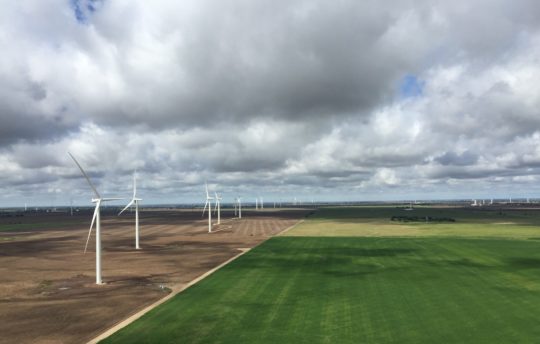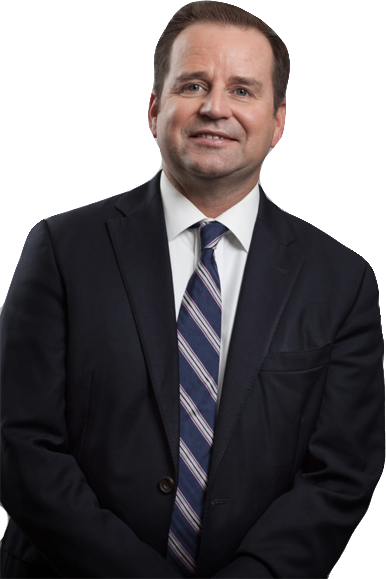For Fortune 500 Companies, Clean Energy Is a Top Strategic Imperative
To reach the corporate market’s full potential, renewable energy companies like Apex must create a path for power buyers of all sizes.
For every company—no matter its size—energy makes growth possible.
More and more, companies are looking to clean energy procurement as a strategic business decision to support their growth and business bottom line.
I recently spoke on an executive panel at the Platts Global Power Markets Conference in Las Vegas about how energy markets are changing. One thing is unequivocally clear to every analyst and executive following energy market trends: America’s biggest companies are set to drive significant long-term demand for clean, renewable energy. Yet only the early adopters have started to make good on their commitments.

Avery Dennison headquarters in Glendale, California. The corporations
have signed wind energy PPAs with Apex for 25 MW and 20 MW, respectively.
Consider this: of 240 Fortune 500 companies that have set major sustainability or clean energy targets, only about 30 have power purchase agreements (PPAs) currently in place.
To Apex, this represents a huge market opportunity—and the elephant in the room with regards to current policy debates in Washington. Hundreds of leading American companies have yet to actualize their goals, and none are shopping for coal. The availability of affordable clean energy is shaping future location and expansion decisions in an increasingly diverse set of sectors.
Even CFOs have embraced the language of sustainability, because today it’s clearly economic. According to one new study, nearly 80,000 sustainable energy projects completed by about 200 Fortune 500 companies collectively saved $3.7 billion for these companies last year alone. With this type of cost savings, it won’t be long until nearly every F500 company has a strategy to cash in on the “green” in clean energy.
The definition of “additionality” is also changing in real time. Where once it meant leading corporations were helping bring new renewable energy projects online, today it means even more.
It’s about strengthening regional grid resiliency by diversifying the power mix, creating economic growth through billions of dollars of infrastructure investment in key geographies, and enhancing our national energy security. It’s also about building stronger companies and brands by setting sustainability goals and achieving them efficiently.
These trends illuminate why the outlook for wind energy growth and corporate demand over the next few years is more bullish than it’s ever been.
To reach the corporate market’s full potential, we must create a path for power buyers large and small.
The question is which attributes will determine the energy companies of choice for this rapidly expanding consumer base. Purchasers are rapidly becoming savvy, realizing there is more to a 15- or 20-year commitment than rock-bottom price. The economics of wind are such that other factors are quickly growing in prominence—factors such as innovation, integrity, project quality, and trust.
Apex is positioned to meet the challenge. For all the promise of clean energy, executives remain cautious due to the initial complexity. That’s why our focus is on finding partners, not just transactions. This is especially important when we consider a recent survey showing 85% of companies that had already signed a clean energy deal were actively looking to procure more of it. Ask any business, and they will tell you success starts with repeat customers. Ours is no different.

To reach the corporate market’s full potential, we must create a path for power buyers large and small. To do so, partnership isn’t a nice-to-have; it’s a must-have. This is highlighted in a recent report that features Apex’s approach to serving the fast-evolving commercial and industrial market for clean energy (see page 24). Providing flexibility is a key priority.
Corporate purchasers are also prioritizing location, specifically seeking projects in proximity to their demand. The diversity and depth of the Apex pipeline, with strong interconnections across all the major grids, is answering the next-level question.
Apex Clean Energy takes enormous pride in delivering peak confidence and peak performance to our partners. As we look at the years ahead, we see the busiest cycle we’ve ever imagined, in no small part driven by a corporate market ready to help accelerate the shift to a clean energy future.

